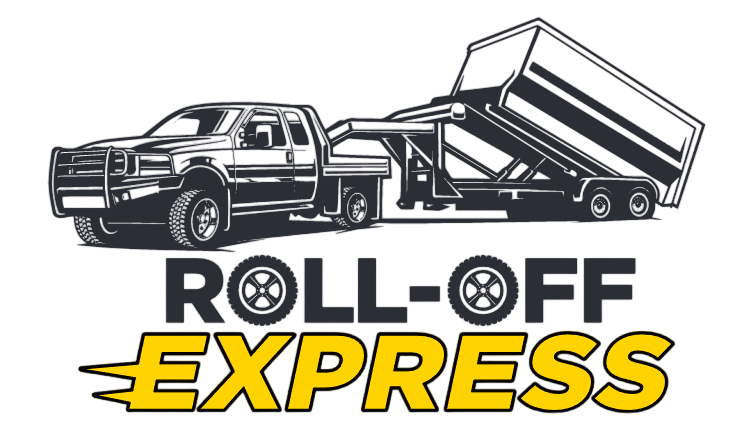Choosing the right commercial dumpster size is like picking the perfect pair of shoes; too small, and you’re left cramped and uncomfortable, too big, and you’re just wasting space. With options ranging from 2 to 40 cubic yards, each size serves a specific purpose for different businesses. So, how do you know which one fits your needs best? Let’s explore the various sizes and what might work for you.
Understanding Commercial Dumpster Sizes
When you’re looking for a commercial dumpster rental, understanding the various sizes available can save you time and money. Different businesses generate different amounts of waste, so it’s essential to choose a dumpster that matches your needs.
You wouldn’t want to overestimate and pay for unused space, or underestimate and end up with overflow that could disrupt your operations.
Consider the types of waste you’ll be disposing of, as some sizes are more suited for specific materials. For example, if you’re running a construction site, you might require a larger dumpster for bulky debris.
On the other hand, a smaller size might suffice for a retail store or office. By evaluating your waste volume and type, you can make an informed decision.
This way, you guarantee efficient waste management while keeping costs in check.
Common Sizes of Commercial Dumpsters
Commercial dumpsters typically come in several common sizes, ranging from 2 to 40 cubic yards. These sizes cater to different needs, whether you’re managing a small office renovation or a large construction site.
The 2-yard dumpster is perfect for small businesses or restaurants that generate minimal waste. If your business produces more, consider a 4-yard or 6-yard dumpster.
For mid-sized projects, you might opt for an 8-yard dumpster. This size works well for retail stores or larger offices.
If you’re dealing with heavy debris or large volumes of waste, the 10-yard to 20-yard options are ideal for construction sites or major cleanouts.
Finally, for extensive projects, the 30-yard and 40-yard dumpsters are your best bet, accommodating substantial waste loads effectively.
Knowing these common sizes helps you choose the right dumpster for your specific needs, ensuring efficient waste management.
Capacity and Volume Considerations
Understanding the capacity and volume of a dumpster is essential for effective waste management. When you’re deciding on the right dumpster, consider how much waste your business generates.
Dumpsters typically range from 2 to 8 cubic yards in size, and each size can hold a varying amount of material. For instance, a 2-yard dumpster is ideal for smaller operations, while larger businesses might need a 6 or 8-yard option to accommodate hefty waste loads.
It’s important to think about the type of waste you’ll be disposing of too. Dense materials, like concrete or metal, will weigh more and fill up space quickly.
On the other hand, lighter materials like cardboard or plastic may allow for more volume. Knowing your waste type and expected volume can help you choose a dumpster that meets your needs without overflowing or wasting space.
Choosing the Right Dumpster for Your Business
Choosing the right dumpster for your business can make a significant difference in your waste management efficiency.
First, consider the type of waste you generate. Different industries produce various materials, and selecting a dumpster designed for your specific needs guarantees proper disposal.
Next, think about the frequency of waste disposal. If your business generates waste daily, a larger dumpster might be necessary to avoid overflow. On the other hand, if you produce minimal waste, a smaller option could suffice.
Also, assess your space limitations. Confirm you have enough room for the dumpster while allowing access for waste pickup.
Don’t forget to check local regulations regarding dumpster placement and size requirements.
Factors Influencing Dumpster Size Selection
When selecting the right dumpster size, several factors come into play that can greatly impact your waste management strategy.
First, consider the volume of waste your business generates. If you’re in a high-traffic industry, you’ll likely need a larger dumpster to accommodate your waste.
Next, think about the type of materials you’ll be disposing of. Bulky items may require a bigger dumpster than regular trash.
Also, evaluate your disposal frequency. If you plan to empty the dumpster more often, a smaller size might suffice.
You should also factor in space limitations at your location; make certain the chosen size fits comfortably without obstructing operations.
Finally, your budget plays a vital role. Larger dumpsters typically come with higher rental costs, so balance your needs with your financial constraints.
Tips for Efficient Waste Management
To manage waste efficiently, start by implementing a clear segregation system for recyclable materials, organic waste, and general trash. This helps you minimize landfill use and makes recycling easier.
Next, regularly schedule dumpster pickups to prevent overflow and maintain a clean environment. You don’t want trash piling up and causing issues for your business.
Consider using smaller containers for specific waste types to encourage proper disposal. Educate your employees about waste management practices, so everyone understands their role. You might even set up incentives for those who consistently follow the guidelines.
Finally, keep track of your waste production and disposal costs. Analyzing this data can help you identify areas for improvement and reduce expenses over time.
